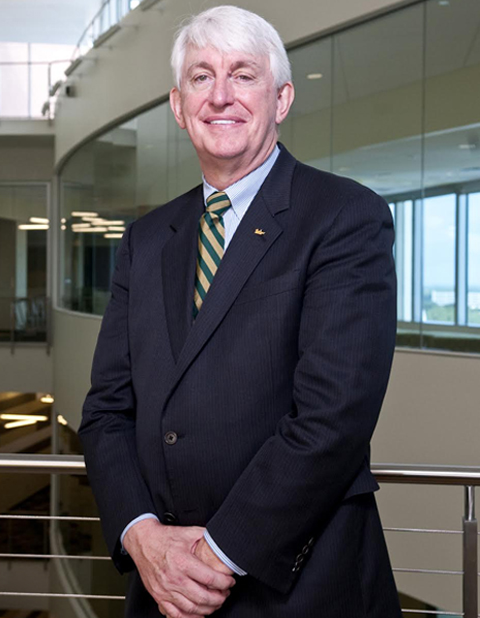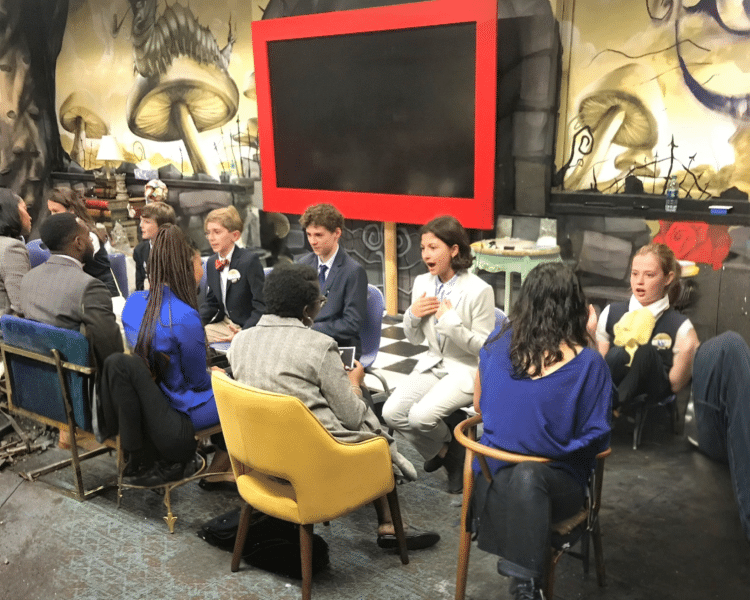USF to host Young Universities Summit in Tampa
Nearly 200 university presidents and other global education leaders are expected to attend the first Young Universities Summit in North America June 5-7 in Tampa.

In the world of education, a university that is less than 50-years-old is considered young. It may compete with older, more established universities with centuries of history and global reputations.
So young universities have been meeting annually in places like Barcelona, Spain, and Brisbane, Australia, to talk about common challenges. Organized by the U.K.-based Times Higher Education (THE), the Young Universities Summit has never been held in North America. Until now.
Nearly 200 presidents and other education leaders from across the globe are expected to converge on Tampa June 5-7 to attend the summit hosted by the University of South Florida.
“We were deeply honored to be asked to host,” says Ralph Wilcox, USF Provost and Executive Vice President. “We’re just immensely proud that THE recognized the great strides that the University of South Florida has made in partnership with the Tampa Bay community.
He notes USF cannot become a “world powerhouse in education” without the community, nor can the community achieve its goals without a powerful foundation in higher education.
The summit will be an opportunity for education leaders to learn from each other.
.
“The University of South Florida found ways to overcome those [higher education] challenges, and they wanted to be sure other universities, young universities from across the United States and around the world, have the opportunity to visit Tampa and to visit the University of South Florida,” says Wilcox, who holds a doctorate in Global Studies from the University of Alberta, Canada.
Founded in 1956, USF falls into Times Higher Education’s category of Golden Age universities opened to meet the demand of service members returning from World War II. Nine of Florida’s 12 public universities fall into the Golden Age or young university categories being served by the summit.
Times Higher Education ranked USF seventh among public U.S. universities in the Golden Age category in April 2017.
Whether the university is 50 or 70, they share common challenges largely associated with competing against institutions with reputations dating back as much as 900 years.
“One identifies those universities that have a brand that’s been established,” Wilcox says. “That doesn’t necessarily mean that they are better than. They are more recognized than the younger universities.”
Younger institutions tend to be more ambitious, dynamic and agile. Sometimes they possess a greater ability to be relevant in the areas of entrepreneurship and innovation, he says.
“There are advantages with being young, and those advantages tend to rest around our sense of agility and nimbleness to respond to change, to respond to the needs of the marketplace,” he says.
Younger universities tend to focus on research that has a high impact. “We’re looking to improve the well-being of the community we serve,” he explains.
At USF, much of the $550 million dedicated to research is focused on improving health, the environment or the needs of financial institutions, business and industry in the region and beyond.
“We tend to embrace innovation and entrepreneurship in ways that older universities tend not to — and arguably have no need for,” he adds. “All too often they are quite comfortable.”
The summit features keynote speaker Andrew Hamilton, president of New York University and former vice-chancellor of the University of Oxford, who will talk about his experiences in higher education. Other dignitaries are coming to speak from Israel, Scotland, France, England and Finland.














